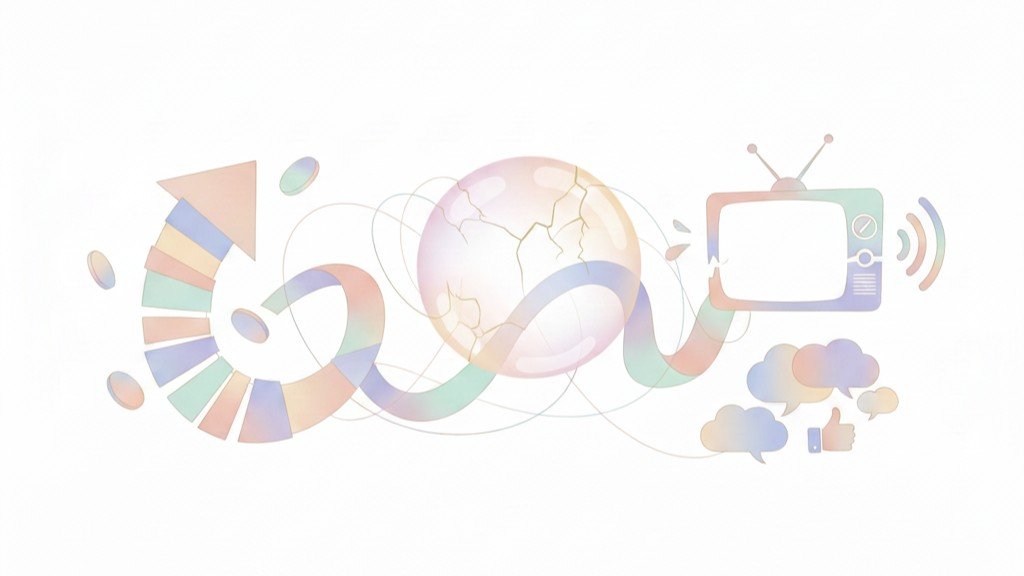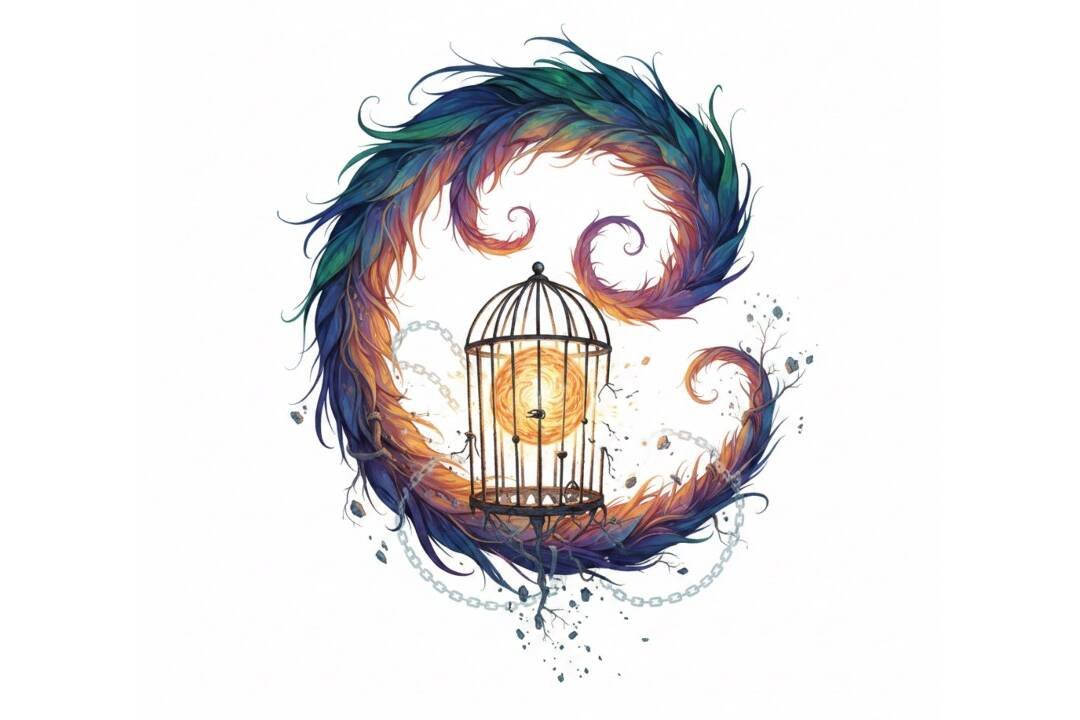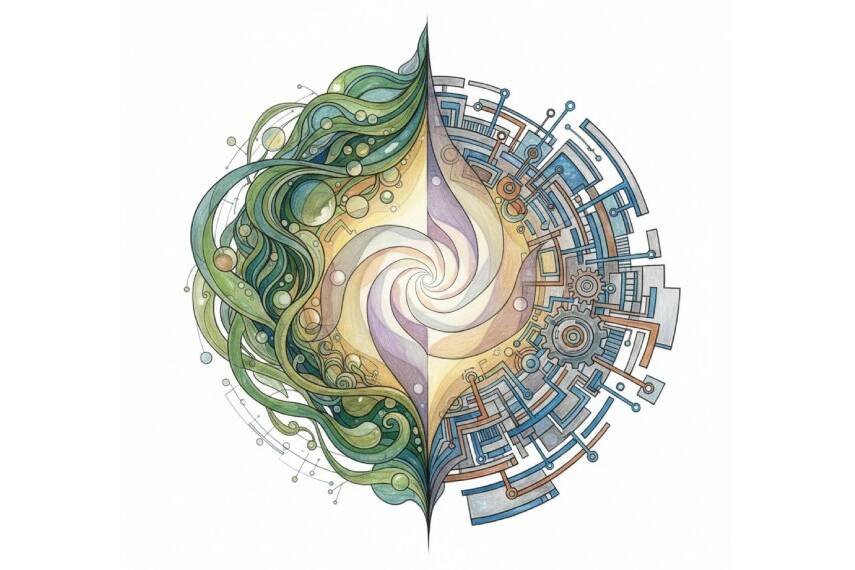Mujeeb Jaihoon traces the unholy alliance between the two actors in a Perception-Driven Empire..
Economic theories drawn with Greek letters and careful assumptions speak of equality, of rational actors, of markets that will correct themselves. Yet, history tells a different tale. Decade after decade, we tumble into recessions and depressions, often leaving the finest models crumpled on the floor.
Why? Because the brilliant minds who penned those theories forgot to account for the single most powerful, unpredictable, and non-quantifiable variable: the human heart.
The Phantom of ‘Rationality’
The core problem lies in the myth of the “rational actor.” Our models assume we are calm calculators, always seeking maximum profit. But step onto a trading floor during a panic, or talk to a person who just lost their job, and you see the truth: economics is an emotional enterprise, not merely a monetary business. The market, in its deepest sense, is a massive conversation among billions of souls, driven not by logic, but by the twin forces of greed and fear.
When times are good, optimism floods the system. This optimism is contagious. We become convinced that the upward trajectory will never end. We believe the most unlikely stories of riches. Greed, at this stage, overrides all theoretical warnings.
The Gravity of Fear
Then comes the inevitable prick of the bubble. One major bankruptcy, one shocking headline, and the fever breaks. Optimism is instantly annihilated by fear.
Fear is a psychological gravity field, pulling every investment, every asset, and every hopeful plan toward the ground. People don’t sell their homes or their stocks because a new model proves they are overvalued; they sell because their neighbor is selling or the news is terrifying.
The Media: Amplifying the Market’s Heartbeat
The core driver of the economy is the collective mood which is heavily shaped and broadcast by the media.
1. Economics is a Perception-Driven Empire
The value of an asset is not determined solely by its fundamental calculations (earnings, cash flow, debt) but by the collective perception of its future value.
Perception Becomes Reality: If a million investors believe a stock is worth $100, the stock will trade at $100, regardless of what a theoretical model suggests. When the media uniformly promotes a narrative of “unprecedented growth,” it solidifies that collective perception, turning potential buyers into actual buyers and validating a boom.
Real capital is not just cash; it’s the trust that a company will be profitable or that a government will repay its debt. When the media focuses intensely on a solvency issue or a political risk, that trust evaporates instantly, causing capital to flee even before the financial metrics officially register a problem.
2. The Unholy Alliance Between the Media and the Market
The relationship between media houses and financial markets is symbiotic, yet often destabilizing.
The Market Needs the Drama: Financial markets are inherently complex and abstract. The media simplifies this complexity into dramatic narratives: the “bull run,” the “bubble,” the “crash.” These ‘sentiments’ attract viewers and clicks, which is the media’s core business.
The Media Needs the Audience: Extreme market movements are excellent content. A 10% gain is less newsworthy than a sudden 3% crash. This creates a bias toward volatility and sensationalism, which drives engagement but distorts the objective reality of the market’s day-to-day operations.
3. Media Enables the Hope/Despair Narrative
Media houses frequently act as enablers of the emotional cycle, taking no responsibility for the instability they help create.
Fueling the Boom (Hope): During a rally, the media often highlights retail investors making quick fortunes, running glowing profiles of high-flying companies, and emphasizing the “fear of missing out” (FOMO). This rhetoric encourages more participation, adding fuel to the “hope” side of the cycle and inflating the bubble.
Accelerating the Fall (Despair): When the market begins to slip, the reporting shifts instantly to “panic,” “collapse,” and “crisis.” This coverage validates and intensifies the initial fear, pushing nervous investors to sell, thus accelerating the market decline and deepening the collective despair. The media reports the fear, which then creates more of the fear it is reporting.
4. Entertainment Over Information
The constant dramatization by the media causes people to watch the market’s boom and fall with a sense of cinematic wonder. By turning the market into a spectator sport, the media encourages emotional investment and detachment from fundamental analysis. People watch the drama of a market swing rather than understanding the underlying economics.
This cinematic framing pushes individuals to act on impulse rather than patience. When the financial commentator speaks of a “once-in-a-lifetime opportunity” or a “doomsday scenario,” it triggers an immediate emotional response that encourages rash buying or panic selling, proving that the human heart, not the computer model, is the final arbiter of value.
Ultimately, economics isn’t a science of numbers; it’s a herd mentality, where greed and fear, amplified by a sensationalist media, drive systemic outcomes far more than any equation. To truly understand markets, we must stop searching for a perfect model of rationality and instead embrace the complex, cinematic drama of the human heart. The financial world remains an empire of perception, and until we factor in the emotional narrative, recessions will continue to appear as unpredictable as a plot twist in a blockbuster film.
Mujeeb Jaihoon
Mujeeb Jaihoon, reputed Indian author, explores themes of universal love, deeply embedded in a disruptive spiritual worldview.
Related Posts
Feb 26 2026
Perfection is His Sole Privilege
Surrender "should have" fantasies to embrace the divine perfection and wisdom…
Feb 25 2026
Feathers and Bars: The Immortal Inmate
Jaihoon explores the mystical paradox of the ageless, vibrant soul trapped…
Feb 11 2026
Of Wounds and Wonders: Seeking the Divine Signature in Love and Pain
To love is to know. Whether through nature or machines, seekers find the…
Feb 10 2026
ഇതാണൊ ഇസ്ലാം ?
Mujeeb Jaihoon's controversial take on some of the double standards prevalent…



